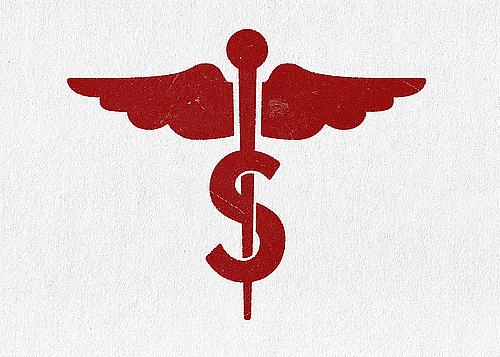Why GlaxoSmithKline may stand alone in cutting off payments for doctors

Tipping point. Big shift. Something massive.
All of these phrases have been used to describe the effect of GlaxoSmithKline’s decision to stop paying doctors to market its drugs. (That last phrase was the one I used.)
But let’s cut the confetti for a moment. There are three main reasons to be skeptical that doctor payments will go away entirely.
1. Disclosure of pharmaceutical industry connections in scientific journals has not stopped physician payments. There was a time when you could pick up a medical journal and read it from cover to cover with scant mention of a drug company affiliation. That was largely because journals did not require authors to disclose that they received payments from drug companies. When more and more journals started requiring those disclosures, there was speculation that drug companies would eventually have less influence in the medical literature. Instead, drug companies hired ghost writers to help make their scientific articles more appealing to journal editors. And it is now rare to see a journal article that does not contain a disclosure of a drug company affiliation. It has become so common that it no longer appears to have any sort of stigma attached. It’s akin to the discussions around product placements in television shows and movies. Now we expect to see cereal brands we recognize on sitcom shelves. We expect to see the Apple logo every time someone opens a laptop. If we don’t, we think it looks fake.
2. GSK has broken new ground before in disclosures and remained an outlier. In October 2012, GSK’s CEO Andrew Witty announced that the company would make its clinical trial data public. For years, critics of the industry said that companies were only publishing the positive results of clinical trials and keeping the bad outcomes secret. Witty said at the time:
Because of our unique role, we recognize that society holds us to higher standards than for other industries. This is how it should be. Over the last four or so years we at GSK have been working hard to be more open and transparent. As I have shown these new approaches are helping to provide new solutions for serious global health issues. They will also help build society’s trust.
GSK went even further in February 2013, announcing it was backing the AllTrials campaign, founded by science writer Dr. Ben Goldacre and others. This is from the AllTrials website:
The best available evidence shows that about half of all clinical trials have never been published, and trials with negative results about a treatment are much more likely to be brushed under the carpet. This is a serious problem for evidence based medicine because we need all the evidence about a treatment to understand its risks and benefits. If you tossed a coin 50 times, but only shared the outcome when it came up heads and you didn’t tell people how many times you had tossed it, you could make it look as if your coin always came up heads. This is very similar to the absurd situation that we permit in medicine, a situation that distorts the evidence and exposes patients to unnecessary risk that the wrong treatment may be prescribed.
But GSK has remained the only major pharmaceutical company to sign the AllTrials pledge.
3. Cutting off doctor payments may end up being very bad for the bottom line. For this type of analysis, I turn to the experts. John LaMattina is one of the smartest voices on the industry. The former president of Pfizer Global Research & Development writes for Forbes and said that GSK’s move – while noble – could hurt its business, making it unlikely that others will want to follow suit. He wrote:
There is a reason why pharmaceutical companies pay doctors to talk about the benefits of their drugs. As [journalist] Scott Hensley wrote in the Wall Street Journal some years ago, Merck once calculated that doctor-led discussion groups provided a 3.66 times return on investment (ROI), whereas only a 1.96 ROI was realized for a meeting of doctors with a sales representative. This makes sense as a practicing doctor is likely to be viewed more favorably and have more influence on other doctors than a person in sales would have. Also, shifting the compensation of sales representatives from the hard measure of actual prescriptions written to softer measures like technical knowledge and quality of service could also result in lower overall sales. Prescription volume will no longer be the driving force for these representatives.
So, will other drug companies follow GSK’s lead and cut off payments to doctors? I’m doubtful. Let me know if you disagree. Write me at askantidote [at] gmail.com or via Twitter @wheisel.
Image by colindunn via Flickr

